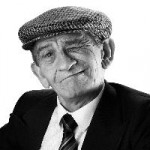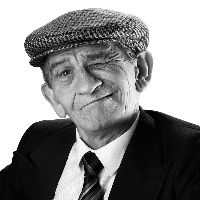Age is not always a man or woman’s best friend.
If you’re getting long in the tooth and trying to get a loan to start a business, you might have a tough time borrowing money. Age means more risk for lenders. Unless you have solid, accessible security to offer, or unless you’ve got photographs of your bank manager committing indictable atrocities under the influence of tequila, you are going to have a tougher time nailing down business loans once you’re beyond your prime.
Other issues arise as you approach the 3-digit age bracket whilst simultaneously experiencing wholesale reductions in the number of functioning follicles on your head. For example, you might have less energy as time passes. On the best days we can smugly claim that slow and steady wins the race. I swear by that one more and more lately… But on bad days, there’s no doubt that we simply produce less than we did 10 or 20 years ago.
What about those who’ve not had the good fortune to accumulate the savings needed to kick back and enjoy the golden years? Should aging entrepreneurs, or any aging workers edged out of the workforce, have cause for hope? What are folks to do once they land on the wrong side of 50, all skilled up and nowhere to work, yet life and bank account simply won’t allow them to hang up their spurs?
The uncompromising entrepreneur in me insists it’s our undeniable right to run small businesses for as long as we want or need to. But is this actually true? As time puts the squeeze on, as energy dwindles, and as business support conventions get incrementally less helpful, the limitations of time become more apparent.
Drawing from the KFC-Colonel Saunders story, we’re only as restricted as we choose to be. Colonel Saunders was 65 years old when he sold his first Kentucky Fried Chicken recipe, and managed to do so only after weathering a phenomenal 1009 rejections. At the time he was reduced to living on $105 Social Security cheques. That was 1952. I imagine that would have been the final straw for some 65-year-olds, but instead of lying down, Saunders pushed straight forward.
He traveled across the country by car from restaurant to restaurant, cooking chicken for restaurant owners and personnel, and entering into handshake agreements that paid him a nickel for each chicken sold by each restaurant. In 1964, with more than 600 franchise outlets for his chicken in the US and Canada, Colonel Saunders sold his interest in the business for $2 million. In 1971, the business sold for $285 million, and then in 1986 it was sold to PepsiCo, Inc for $840 million.
It’s unlikely that Colonel Saunders would have allowed himself to be held back by a declined loan application. Lenders need to be cautious, entrepreneurs have to take risks. If it were left to lenders alone to determine the allowable level of risk for business ventures, economies would not have the entrepreneurial base needed to flourish. In the gap between caution and risk, it is up to the entrepreneur to take the first step and the lead.
Those who start businesses fly in the face of risk. Instead of turning the control over to others, they chart their own direction and take the lead. The Colonel created his success by believing in his idea, taking action, and being tenacious. Belief, action and tenacity are qualities within our control, each more powerful than any limitations placed on us by age.

